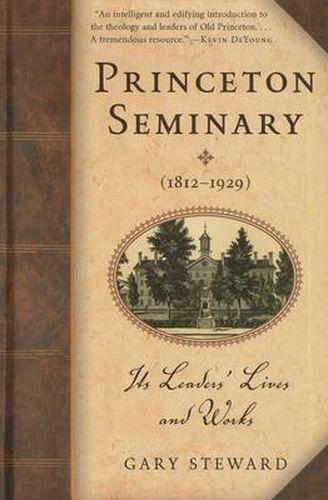Readings Newsletter
Become a Readings Member to make your shopping experience even easier.
Sign in or sign up for free!
You’re not far away from qualifying for FREE standard shipping within Australia
You’ve qualified for FREE standard shipping within Australia
The cart is loading…






Princeton Theological Seminary recently celebrated its bicentennial. Many of the key ideas of the modern era, and Christian responses to them, were formulated between the time of its founding and the early twentieth century–this is the Old Princeton era. Gary Steward introduces us to the great men of the seminary’s early days, together with some of their most important writings. While commemorating the legacy of Old Princeton, this book also places the seminary in its historical and theological contexts. Steward provides biographical overviews of the widely known figures Charles Hodge and Archibald Alexander and of the lesser-known figures Samuel Miller, James Waddel Alexander, Joseph Addison Alexander, and Archibald Alexander Hodge, and he also reviews selected writings from these great men. Not only does he provide a sweeping introduction to Old Princeton, but this book invites further exploration by providing bibliographical material for additional reading and research. The book’s lists and timelines further help to make it a useful reference volume.
$9.00 standard shipping within Australia
FREE standard shipping within Australia for orders over $100.00
Express & International shipping calculated at checkout
Princeton Theological Seminary recently celebrated its bicentennial. Many of the key ideas of the modern era, and Christian responses to them, were formulated between the time of its founding and the early twentieth century–this is the Old Princeton era. Gary Steward introduces us to the great men of the seminary’s early days, together with some of their most important writings. While commemorating the legacy of Old Princeton, this book also places the seminary in its historical and theological contexts. Steward provides biographical overviews of the widely known figures Charles Hodge and Archibald Alexander and of the lesser-known figures Samuel Miller, James Waddel Alexander, Joseph Addison Alexander, and Archibald Alexander Hodge, and he also reviews selected writings from these great men. Not only does he provide a sweeping introduction to Old Princeton, but this book invites further exploration by providing bibliographical material for additional reading and research. The book’s lists and timelines further help to make it a useful reference volume.